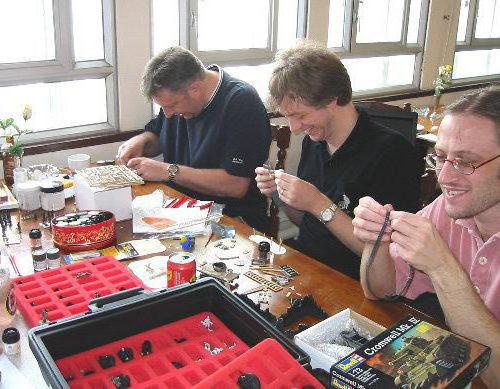The grounds for acquiring property rights are any life circumstances that, in the context of legislative acts, entail the emergence of a right to a specific property. The simplest example is the purchase and sale of real estate or the receipt of a hereditary mass.
Features
Ownership is regarded as subjective, the occurrence of which is possible only after the onset of legal facts, and sometimes even with a combination of several. For example, to accept the inheritance, the mere fact of the death of the testator is not enough. The legacy still needs to be entered in order to become the legal owner of the property.
Legally significant facts can be not only certain circumstances, but also acts, for example, the manufacture of a certain thing.
Since ancient times, there are two groups of grounds for acquiring property rights:
- original, that is, the right to a thing that has never had an owner;
- derivative, that is, for the emergence of a new law, the will of the owner of the thing is necessary.

Initial way
In this case, the arisen right to the thing has never been assigned to anyone. For example, an item created as a result of processing other public things.
In some cases, ownerless real estate is also attributed to the original right. Despite the fact that the item previously had an owner, but for some reason nothing is known about it and it is not trying to restore its rights, this is still the original way. Unauthorized construction also falls into this category.
Newly Created Property
In this case, the original grounds for acquiring the right of ownership can only occur if the norms of law are observed in the manufacture of the thing. The right to drugs or weapons that are manufactured at home cannot be recognized, even for personal use, since such acts are illegal and punishable by law.
Another example. If the construction of the property is carried out on land that the developer does not own, then you can obtain legal rights to the construction only if you have rights to this site.

The right to a movable made from materials of another owner
If a new thing appears under a work contract by processing customer’s materials, then the owner of the materials has the right to it, provided that the contractor is paid for the work.
At the level of legislation, there are cases when the rightful owner is a contractor or processor of materials in the presence of a combination of the following conditions:
- if the processor did not know that he was using materials belonging to someone else and should not have known about it;
- the thing that turned out in the end is intended for personal use;
- the cost of producing a new item is much higher than the cost of materials.
The last condition requires the processor to pay the cost of materials to their owner.

Public things
The legislation describes only an approximate list of publicly available things. These include berries, mushrooms, plants, and even animals. But in order to obtain a legal right, a person is obliged to comply with applicable law, for example, not to shoot animals in the months when it is prohibited. You can not fish during spawning and so on.
Ownerless property
Property may be deemed ownerless in the following cases:
- if nothing is known about the owner;
- if there is a refusal of the owner;
- or the thing just doesn't have an owner.
The process of the emergence of ownership depends not only on the type of property, but also on value.
According to the statement of the municipal authorities in the registration authority, the property is registered as ownerless. If the owner has not appeared within 12 months, then the authorities have the right to go to court and demand recognition of the ownership of this thing for them.
If we are talking about property with a minimum value (not higher than 5 minimum wages), then the owner becomes the person who discovered such a thing in his area. In this case, no special actions are required, the person simply begins to use this property.
If the discovered property is much more expensive and a third party claims it without being the owner, then the question of the right of ownership is decided in court.

Unauthorized construction
Unauthorized construction is the construction of a structure or building that meets one or more criteria:
- Built on a plot not intended for a specific type of construction.
- The construction was carried out without obtaining permits.
- The erected object does not comply with urban standards.
Such non-residential buildings are subject to demolition, and at the expense of the one who built them. However, it is possible to obtain all rights to such a structure if the purpose of the land is changed according to the procedure established at the legislative level. Just do not succeed in obtaining any rights to the construction, which poses a threat to the life or health of people.
Acquisitive prescription
The basis for the acquisition of property rights may also be the conscientiousness of using someone else's thing. In addition to good faith, the following conditions must be met:
- openness of ownership;
- attitude to the property of others should be the same as to their own;
- continuity of ownership.
Acquiring prescription occurs in the following terms:
- when owning movable property, after 5 years;
- when using real estate for 15 years.

Find
No need to confuse ownerless property and find. The item that is found has a master who, against his will, has lost his property right.
The person who discovered the find has a duty, he must notify the owner of the thing, his authorized person or to law enforcement agencies. The find may be kept by the person who discovered it, in the police or municipal authorities. After half a year, if the owner has not appeared, then the right of ownership passes to the person who discovered this item. If this person also refuses, then all rights to the find pass to the municipal authorities.
In cases where the owner of the find is announced and wishes to return it to himself, he is obliged:
- reimburse all expenses for the entire storage period to the person who has preserved the item;
- apply for the return of the item before the end of the 6 month period from the date of discovery of the item;
- pay 20% of the total cost.
The parties have the right to agree on the amount of remuneration on their own, especially if things do not represent any value to third parties, for example, personal documents or photographs.
Treasure
Unlike the find, the treasure is always hidden in the ground or elsewhere, and the owner of such things cannot be established, or has lost its rights to them, and the concealment procedure must be intentional. Another distinguishing feature is that the find may not be valuable, and the treasure must be of value. The grounds for acquiring ownership are the fact of discovery of the treasure, and if it is found on a foreign land, then it should be divided in half. Moreover, if the treasure was searched without the consent of the owner of the land, then the found treasure is completely seized by the owner of the plot.
Items related to cultural or historical heritage are subject to transfer to state ownership.In this case, the owner of the land or other place where the treasure was discovered, and the person who discovered these items, can expect a 50% remuneration on the value of the property found. If a treasure is found in the process of performing a person’s official duties, for example, during excavations, then he is not entitled to rely on remuneration or to obtain ownership.

Street animals
The grounds for acquiring ownership of stray (domestic) animals are the same as in the case of the find. If a pet was found, its owner is unknown and has not been shown for half a year, then the person who found it receives the right of ownership. If this person does not want to keep the animal, then it passes into municipal ownership.
In a situation when the owner of the animal appears after 6 months after the loss, he has the right to demand from the new owner back him. However, provided that he can prove the pet’s affection for himself or harsh treatment from the new owner.
Derivative Methods
There are three reasons for acquiring property rights, which are most often found in life:
- disposal agreements;
- inheritance;
- succession.
In most cases, the grounds apply to all persons, both legal and physical, of course, with the exception of succession. In this case, we are talking about a change in the legal form of the enterprise.
There are also special derivative methods that only certain subjects of law can use. In this case, only the state has the basis for acquiring ownership in the Russian Federation. There is a special term: nationalization, that is, the transfer from ownership of a legal or natural person of property to state ownership.

Termination of Rights
The grounds and methods of acquiring property rights, as well as the inviolability of the law itself, is a norm enshrined at the constitution level. However, this does not mean at all that the right of ownership will be retained until the person possessing it is the subject of law. After all, owners are constantly changing, a thing can change its appearance and value, or it can simply completely disappear from circulation. And this is the termination of the ownership right of one person, without the occurrence of the same right of another person. For example, slaughter of infected livestock involves only termination of ownership. No legal certification is required if the thing is destroyed by the owner and these actions do not affect the interests of third parties.
Forced termination of ownership is usually associated with the emergence of the right of the new owner. For example, requisition or confiscation. Or another example. If there is a weapon in the hereditary mass, but the heir could not obtain the right to store and use it, then it shall be withdrawn.
But in most cases, the grounds for acquiring and terminating the right of ownership intersect; if someone alienates or loses the right, then someone acquires it in the future.